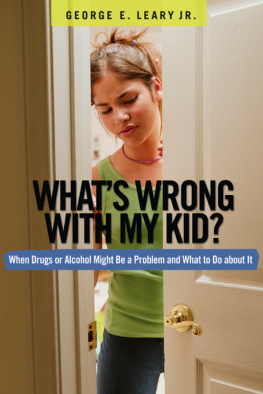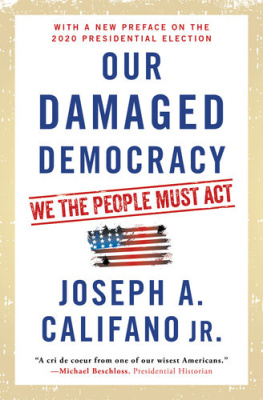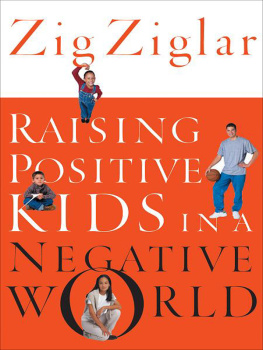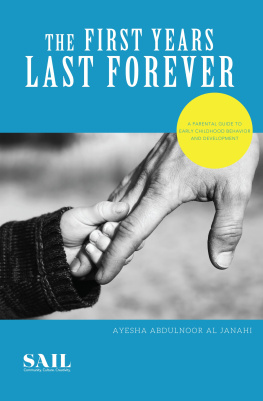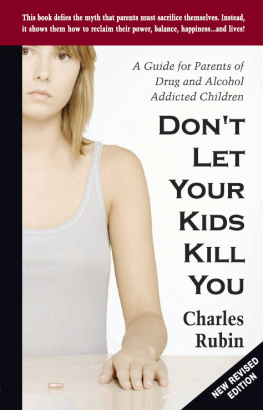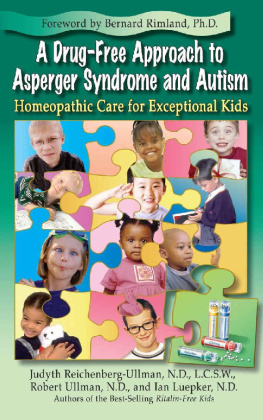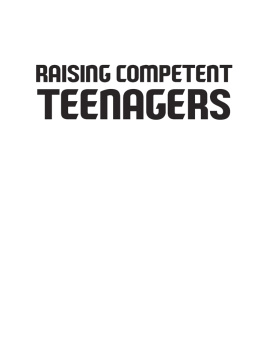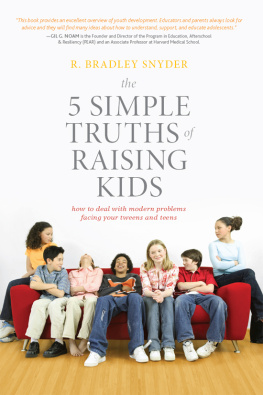Table of Contents
Introduction
We live in a drug-crazy world. If you are a parent worried about how to protect your child from drugs, you are not alone. Many parents are deeply concerned about substance abuse in young people and dont know what they can do to prevent it. Most books about raising drug-free children begin with the preteen or teenage years. But there is much that you can do long before your children reach those notorious teenage years. This book will give you tips from birth to adulthood for raising a drug-free child. You will find useful ideas in it whether your child is an infant, a five-year-old, a fifteen-year-old, or a young adult.
I have assembled the most relevant and current information available on child development and adolescent substance abuse to provide you with concrete advice for inoculating your child against the temptations of drugs. Many of you may be reading this book long after your childrens births and are perhaps wondering how your children will turn out if you have not followed all of these tips when they were younger. Rest assured that failure to follow these tips does not imply that your children will become drug addicts! Furthermore, even if you have not raised your children according to the suggestions for the early years, it is never too late to begin making changes that will help your children resist drugs.
Even with the best of parenting, there is no guarantee that your child will never smoke a cigarette or try marijuana. If your child has experimented with drugs, dont despair. Given the resources and information you had when your child was younger, you have done your best. Furthermore, you are not the only influence on your child. Movies, television, popular music, the Internet, sports heroes, and your childs friends all have a powerful influence on your child, so dont blame yourself if your child has tried drugs.
If your child is already dependent on drugs, and his or her life is spiraling out of control, you will need expert support and guidance that is beyond the scope of this book. Addiction is an illness that does not go away by itself. Although the suggestions in this book will still be helpful in improving your relationship with your child, it will be very difficult to get your child off drugs without professional treatment. (See Resources for suggestions on where to get help.) After your child has been through treatment, this book can be a parenting resource for you while you help your child build a new life free of drugs.
When I was a graduate student in psychology in the early 1970s, I lived for five years in the upstairs apartment of an old farmhouse in California. There were hippies living in the other three apartments in the house, who frequently smoked marijuana. They also occasionally used other illegal drugs, such as LSD and speed (amphetamine). I once observed them carefully weighing small plastic bags of white powder, and I knew it wasnt sugar! One of the young men built a greenhouse in the backyard where he grew marijuana plants. We shared a large backyard and front patio and interacted frequently. These young people, who came from middle-class and affluent families, felt the need to rebel against the establishment, which they saw as violent (this was during the Vietnam War), hypocritical, and overly focused on material wealth.
I had university classes to attend, papers to write, and exams to pass, and I did not want to mess with the chemistry of my brain. So I politely refused whenever a joint was passed around, and to their credit, the other young people respected my choice. When the marijuana smoke drifted up through my living room window in the summer, I would simply close the window. I am telling this story not to brag about my abstinence but to convey my conviction that the availability of drugs is only a small part of the drug problem and that it is possible to resist drugs even when they are readily available.
Efforts to curb the drug problem among youth through law enforcement efforts are like trying to empty water out of a leaky boat. As long as the boat continues to leak, there will be a continuous need to keep it afloat by emptying out the water. The goal should be to fix the boat. Instead of constantly fighting the flow of drugs into our neighborhoods, we should also be focusing on ways to decrease the desire for drugs. Although law enforcement is important, it cannot, by itself, solve the drug problems of our youth.
Furthermore, illegal drugs are only a small part of the problem. There are probably legal psychoactive substances in your bathroom cabinet (such as cough syrup, tranquilizers, or opiate-based painkillers). Your home or office probably also contains some products (such as glue or hair spray) that kids could use as inhalants. The most dangerous and lethal drugs are tobacco (nicotine) and alcohol, both of which are legal for adults and readily available to young people. These two drugs cause more deaths than all the other drugs combined. Preventive parenting is therefore the only way to curb the drug problem at its source.
The approach described in this book may be quite different from other parenting advice you have heard. Many books suggest that children need more discipline, meaning that parents should punish their children for breaking rules. However, strict authoritarian control often backfires by causing children to rebel. Although some children may benefit from more consistency and structure (but not punishment), the root cause of most behavioral problems, including substance abuse, is not a lack of discipline but rather a lack of connection. Children who lack a close relationship with at least one loving parent are at risk for substance abuse, no matter how much discipline you impose on them. Likewise, children who have a close relationship with a loving parent are more likely to resist drugs.
The one hundred tips in this book will show you how to establish and maintain a close connection to your child at each stage of your childs development. It is never too late to improve your relationship with your child. At the root of this approach is spending time with your child, using a nonpunitive approach to discipline, and accepting your childs emotions. Another important aspect of drug resistance is learning about the various drugs, their effects, and their dangers, so I have also included many tips about how to give drug-related information to children at different ages.
I have organized the chapters according to age so you can easily find the tips that are most relevant to you. However, because many of the tips for younger children also apply to older ones, I recommend that you also read the tips for younger children, especially the chapter immediately preceding the age of your child.
My three other books describe a complete approach to nonpunitive parenting (called Aware Parenting). I have lectured in eleven countries and done consultations with parents for more than twenty years. My husband and I have raised a son and a daughter using this approach, and I am proud to say that neither of them smokes or abuses alcohol or drugs. They never had any desire to experiment with drugs or alcohol, even though they attended public schools where drugs were easily available and a university where alcohol consumption was rampant.
You will find that keeping your children off drugs is not the only positive outcome of this approach. In addition to becoming drug resistant, your children will grow up to be emotionally healthy, intellectually competent, cooperative, nonviolent, and compassionate and will become autonomous without the need to rebel during adolescence. My wish for you and for all parents is that your children will reach their highest potential and that you will enjoy a close, lifelong relationship with them, unhampered by substance abuse and addiction.


